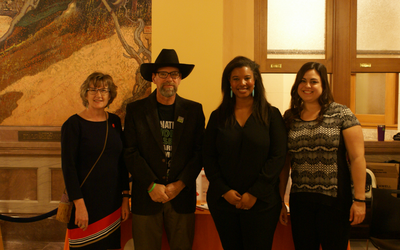
When I was 16 years old, I began to experience the symptoms of autosomal dominant polycystic kidney disease, a condition often passed on by your parents that inevitably causes kidney failure. I grew up watching family members battle kidney disease and undergo dialysis treatment just to stay alive, but I still wasn’t prepared when it was my turn.
For several decades I have spent countless hours in the hospital hooked up to a machine that filters toxins from blood because my kidneys no longer can. In between dialysis treatments, I work a full-time job at a local furniture store, but I still can’t afford the cost of my health insurance. Thankfully, the American Kidney Fund and other charitable organizations provide financial assistance for patients like myself who can’t afford their premiums and co-pays.
These charitable organizations cost nothing to the public, so why have insurers in 42 states rejected patients who receive this financial aid? If it weren’t for the American Kidney Fund, I would have been forced to choose between lifesaving treatment and paying my mortgage.
The Access to Marketplace Insurance Act, or H.R. 3976, is bipartisan federal legislation that prevents insurance companies from dropping patients who pay their insurance costs with help from charitable organizations. I urge Congressman Roger Marshall to co-sponsor H.R. 3976, protect patients’ rights and end insurance discrimination.
We cannot put the power of patients’ access to care in the hands of the insurance industry. Have you relied on charitable financial assistance to help afford your health care? If so, join the fight and share your story so we can put an end to insurance discrimination.